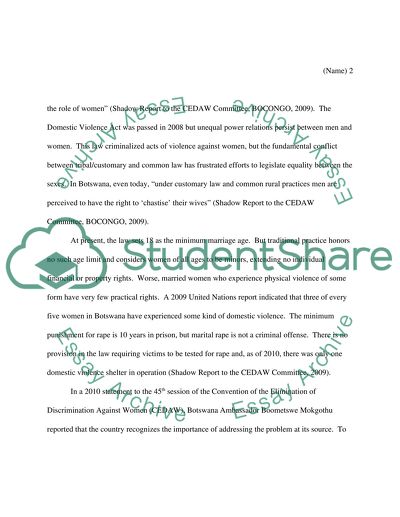Cite this document
(“Confronting Gender Inequality in Botswana Essay”, n.d.)
Retrieved from https://studentshare.org/gender-sexual-studies/1407203-a-report-of-inequalities-in-botswana
Retrieved from https://studentshare.org/gender-sexual-studies/1407203-a-report-of-inequalities-in-botswana
(Confronting Gender Inequality in Botswana Essay)
https://studentshare.org/gender-sexual-studies/1407203-a-report-of-inequalities-in-botswana.
https://studentshare.org/gender-sexual-studies/1407203-a-report-of-inequalities-in-botswana.
“Confronting Gender Inequality in Botswana Essay”, n.d. https://studentshare.org/gender-sexual-studies/1407203-a-report-of-inequalities-in-botswana.


